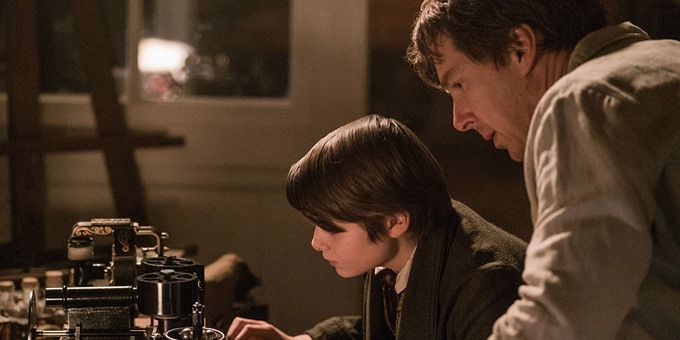 Life & Style
Life & Style

Oscar nominees Benedict Cumberbatch and Michael Shannon electrified audiences at the Toronto film festival Sunday with their portrayals of Thomas Edison and his rival in the race for marketable electricity, George Westinghouse.
 |
| A scene in The Current War directed by Alfonso Gomez-Rejon. — Photo theguardian.com |
TORONTO, Canada — Oscar nominees Benedict Cumberbatch and Michael Shannon electrified audiences at the Toronto film festival Sunday with their portrayals of Thomas Edison and his rival in the race for marketable electricity, George Westinghouse.
The Current War was directed by Alfonso Gomez-Rejon, who described Edison as someone "who came from a world of spontaneous invention without really seeing the purpose for it at first, and created a purpose for something."
In contrast, he said, "Westinghouse could immediately contextualise something and see how it could be greater for society."
"The rivalry between them was interesting," Gomez-Rejon said, because of "what it said about the world and how we can, through invention and technology, leave it better than how we found it."
Edison and his team conducted the first incandescent lightbulb tests in 1879 and a few years later began broad distribution of electricity using a direct current.
Westinghouse, whose interests in gas distribution and telephone switching led him to look into electrical power distribution, saw that Edison’s use of low-voltage DC had a limited range.
After reading about European AC systems, he set out to develop and market AC power systems that could distribute electricity over long distances to dispersed US populations.
He was also able to achieve greater economies of scale with the use of centralised power generation, allowing him to sell electricity at cheaper rates.
The movie also stars Nicholas Hoult as inventor and futurist Nikola Tesla.
Conflicted historical record
Cumberbatch said he knew very little about Edison before taking on the role. "I really was in the dark," he quipped.
His portrayal of the American icon is alternately sympathetic, and not.
Various Edison biographies, he noted, offer a "varied understanding and appreciation of the man."
Cumberbatch’s own interpretation of him, he said, is that of "a man who had achieved a great deal from humble beginnings, who felt assailed in the world. I don’t think that ever left him."
Edison, he said, was "someone who chose really not to hear repeated truth... and that corrupted him."
"It’s an ugly truth, but it’s formed out of something that’s very human. I think there’s some degree of salvation in the sense that he (eventually) admitted that he was wrong."
To prepare for the role, Cumberbatch said he read an extract from Edison’s diary in which the inventor talked frankly about his dreams, "his diet and bowel movements, or lack thereof," literature, "his fantasy world" and how he once "got into a mess in New York because he asked a conductor on a tram which stop to get off at and he couldn’t hear him."
Edison had suffered from partial hearing loss since childhood.
"He was very funny, very self-deprecating," Cumberbatch commented.
Shannon had a wholly different challenge in preparing for the role because Westinghouse destroyed all his personal papers before his death, wanting posterity to judge him only for his deeds.
"My goal wasn’t to try and create an exact replication of George Westinghouse — it’s just not possible — so I more considered his point of view, his way of being in the world and dealing with people," said Shannon.
"Nobody’s gonna come along and say you messed that up, because nobody knows."
Before the start of filming, Gomez-Rejon had found a rare and very old leather-bound book about Westinghouse, and shared it with him.
"It was almost a tribute to George Westinghouse. It was written by someone who had a great deal of respect for him, talked about what a great man he was and all of his accomplishments," Shannon recalled.
"By the time I finished reading it, it really done a number on me, so that was the foundation of my work on the film," he said. — AFP